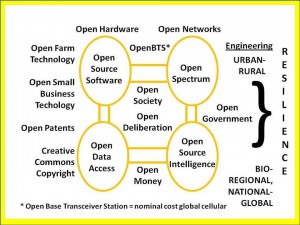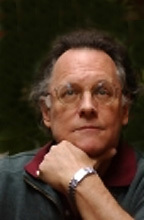
There are competing narratives about what's going on in the Ukraine and why, and it behooves us as citizens to expose ourselves to a range of these before forming our own deeper understanding of what's happening there and what should be done about it. One-sided information and stories lead us to make unwise decisions, as the results of a number of America's recent wars suggest. Having institutions – from good journalism to citizen deliberative councils – that do this for the society as whole would result in wiser policy and a better world.
Competing Narratives about the Ukraine Crisis
The Ukrainian crisis provides a rich opportunity to consider the complexity of it (and similar situations) and to reflect on the often over-simplified narratives promoted by various sides and on the consequences of such narratives.
Most mainstream press I've seen in the U.S. covering the Ukraine crisis recently has focused on the impressive, determined, and seemingly successful popular revolt against a corrupt oligarch and on Russia's invasion to counter the West-leaning thrust of that revolution on its borders. Although acknowledging the cultural diversity of the Ukraine, this coverage seldom gives due treatment to the roles played by hundreds of years of Russian involvement in, settlement in, and changing relationships with this region, especially Russia's extensive military and economic involvement in Crimea and its nearby territory. There is also minimal coverage of the neo-Nazi groups and American government and business interests among the many forces involved in the revolution and its subsequent coup. Perhaps most ironically, journalists, pundits and public officials react with horror at Russia's putting its proclaimed interests ahead of international law and norms while ignoring the long history of the same behavior on the part of the U.S. (to say nothing of previous empires).
There seem to be few angels in this crisis – and the activities and stories of those few are often being manipulated by partisan interests for their own purposes. It is understandable that such a situation has “sides” and that the partisans of those sides weave compelling stories out of selected facts (and usually some falsehoods and half-truths) to justify their positions. But to make wise policy decisions – as citizens and officials – we need to develop deeper-than-partisan understandings of what's going on. Oversimplified partisan journalism does not help us in that. And when it leads to or justifies war and/or other harms, it is actively dangerous.
In the face of extremely rapid changes in both the situation in the Ukraine and in its media coverage, I think it is risky to attempt to summarize what's going on and why. Although many people from many perspectives have tried to do so – some with the intention of enlightening us, others intending to recruit us to their favored positions – I will try to refrain here. I do not know enough, nor am I committed to the work of clarifying the endless nuances of the situation.
What I do offer here is some references to counter the one-sidedness of so much of what I've read in the U.S. mainstream media about this crisis. I do not assert that my references are truer or more relevant than other essays and reports. What I do suggest is that they offer information and perspectives that need to be taken seriously when making decisions about how to respond.
Continue reading “Tom Atlee: Competing Narratives on Ukraine”





